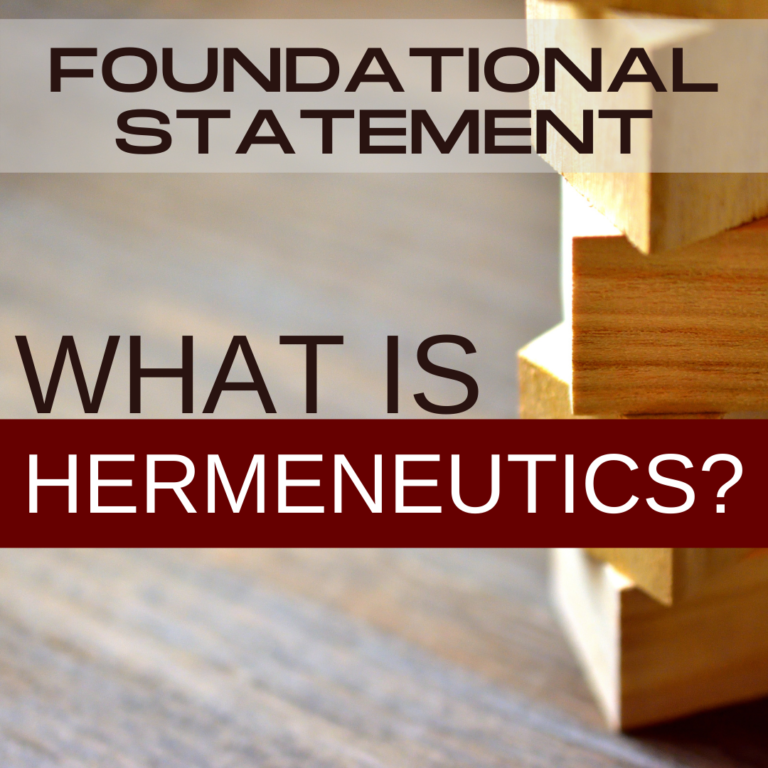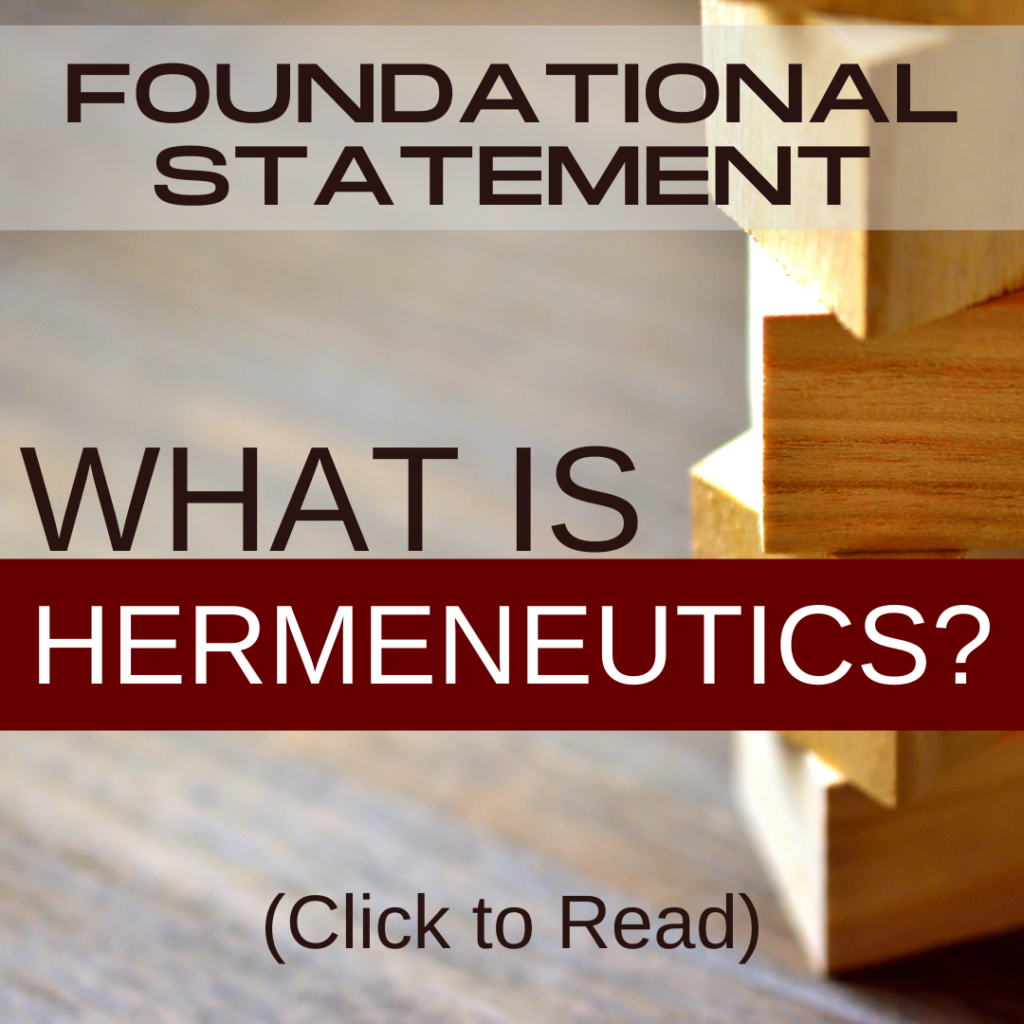

06/07/1956-02/11/2023
The Basis of HermVent
Satan was the first, setting the pattern for all who would come later. He denied the clear warning that God had given and then put his own spin on the message – “You will not die, you will become like God!” This was in clear opposition to what God had said.
Anytime we add to what God has said, dispute what God has said, or reinterpret what God has said in a way that does not accurately present WHAT God has said – we are guilty of Hermeneutical Ventriloquism, putting our words in the place of God’s word – our words in God’s mouth.
This is a site for preachers and teachers of the Word of God. It is a challenge to constantly, consistently, and continually verify our words with the words of the Text. While Satan was guided by a less than noble cause, most of the time Bible preachers and teachers are driven by a firm belief that the Bible is the Word of God and must not be mishandled. We approach the text with a set of beliefs that we believe to be good and right. Therefore, since the Bible is the Word of God, it must affirm what we believe. We do not generally seek to make the Bible affirm what we believe, we just expect that it will. So anything that can be read to support our beliefs is emphasized while anything that conflicts with our beliefs is minimized or ignored. To acknowledge that the Bible sometimes fails to support what we believe is tantamount to sacrificing the beliefs and traditions of God’s church. It is this often unconscious mind set that leads us to commit hermeneutical ventriloquism, sometimes with great intensity and enthusiasm.
The ONE task of the preacher is to faithfully proclaim what God has said. The preacher is not to add or subtract from the message. He is not to reinterpret the message so as to make it more culturally palatable or less offensive to fallen men. He is not to mold the message to fit the creeds or traditions of the church and her leaders, no matter how sincere and God-loving these men may have been. His task is to simply proclaim, “THUS SAITH THE LORD GOD!” If he fails in that, he has failed in his primary obligation—he has failed in his most important task.
Hermeneutics is the process of interpreting the Word of God, or exegeting the Word. Ventriloquism is when one person attempts to speak through/for another. A Hermeneutical Ventriloquist is one who puts his words in God’s mouth and declares, “thus saith the Lord!”
This page is a rant, a vent – against all Hermeneutical Ventriloquists; dedicated to venting against those words that are wrongly presented as coming from God’s own mouth.
When preachers add to or modify what God has said, to either lessen or intensify His word, we have put our words into God’s mouth and virtually elevated our word above His. It is a very serious thing to declare “thus saith the Lord” when He has not thus said. Any man who delivers a message to God’s people that is not from God is in essence saying, “my words outweigh God’s Word” or perhaps less direct, “God could have been more clear, let me clarify…” or, “this is what God meant….” Or, perhaps more commonly, “The text must be read and understood this way, because then it fits with the history and tradition of the church.”
God is not unclear. His word is perspicuous, clear and plain. That is not to suggest that there are no difficult passages in Scripture, rather it is a declaration that God knows how to communicate well and does so when we take His Word at face value.
The preacher’s task is simple: to deliver the message from God. To read the text, give the sense or meaning of the text, and to help the people to understand what God has said (Neh 8:8).
The faithful expositor of the Word is committed to reexamining his theology every time he comes to a passage. His declarations must be filtered not only through a particular text, but through the whole of Scripture. Paul commended the Bereans for receiving his message with a ready and sincere mind, then he added that they “searched the Scriptures daily whether those things were so” (Acts 17:11). This must always be our practice whenever we approach a text. There are relatively few sacred cows, the unassailable meat of the Word, essential foundational presuppositions – but there are a few.
Hermeneutical Ventriloquism Extraordinaire
Faithfully putting words in God’s mouth for over 6 millennia!
General Presuppositions
It is impossible to approach the Bible without presuppositions. We either believe that it is the Word of God, or it isn’t. We either believe that God has spoken plainly with the intent of communicating truth well, or we believe that His words are shrouded in mystery and difficult to understand. We believe that His word is to be taken literally according to the normal usage of words and figures of speech, or we believe that it must be filtered through a theological belief system. We either believe that His word is the ultimate authority, or that authority is shared with history and church tradition. We believe that His word corrects the theological preconceptions of the interpreter, or we believe that the foundational concepts of the prevailing majority opinion throughout the history of the church informs and guides our interpretation of the text. If it is the majority opinion, any variation must be rejected. We either believe that the determinations and decrees of the church councils throughout history define and guide our understanding of truth, or we believe that Scripture alone defines truth.
Essential Presuppositions
- God’s Word alone is the ultimate and final authority for all matters of faith and doctrine.
- The Bible is to be understood in a literal grammatico-historical sense.
- Salvation is by grace alone through faith in God alone for all peoples in all ages. Since the cross, Jesus Christ is the object of that faith. All who come to Christ in faith will be saved.
- God’s ultimate purpose in creation is to reveal His glory to all creation and to manifest and share His glory in and through His people.
- The Biblical Covenants guide our understanding of God’s work with His people and the world. God is the same always, but His dealings with men have changed at times.
- Jesus is the God-man, fully God and fully man, one with God the Father and God the Spirit from eternity past and through eternity future.

Scripture vs. Tradition
At what point do we determine that any subject is so far outside of our own cultural spectrum that we will refuse to re-examine what Scripture has to say about the matter? Are there some things so foreign to our theological bias that we cannot even consider the option that our position may not be…

What IS Hermeneutics
Hermeneutics is the “science of interpretation” (Ramm, Protestant Biblical Interpretation, xiii). Specifically then, Biblical Hermeneutics is the science of Bible interpretation. “Hardly any study in the whole vast realm of intellectual life could be more important than the science of hermeneutics as applied to the Word of God, that which gives us an understanding of…

Reading the Bible Through Rose-Colored Glasses
I had brought several books to read and a few to reread. In rereading one of my books that I had previously highlighted, I was shocked to find that the yellow highlights were gone. I thumbed through the whole book.

Is Polygamy Biblical?
Of all the subjects that cause us great discomfort, perhaps none bring as much uneasiness as the marital practices and customs of the Old Testament. I never come to the subject of Abraham, Sarah, and Hager without some anxiety….

Was the Wine Alcoholic?
Fundamentally, when Scripture conflicts with our tradition it creates discomfort. Many things in the Bible do not jive well with conservative modern evangelical culture.
